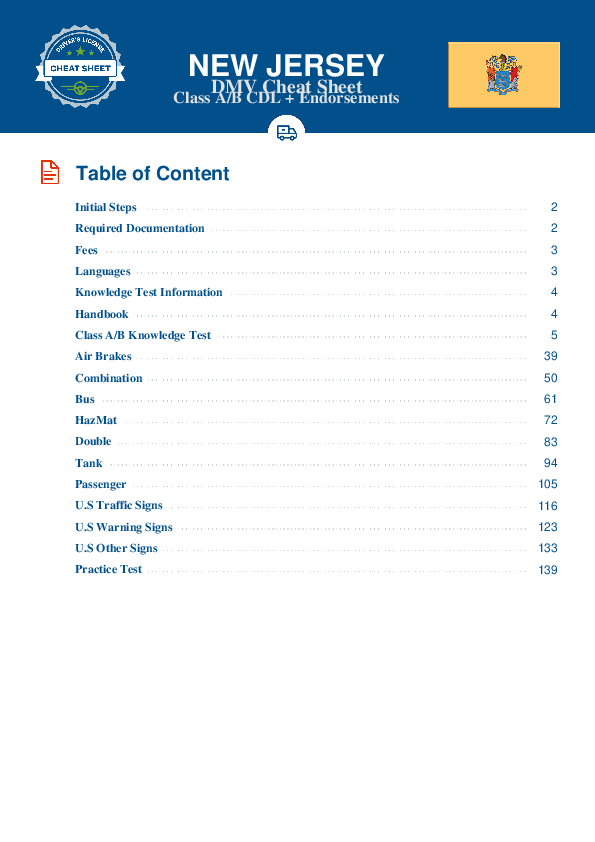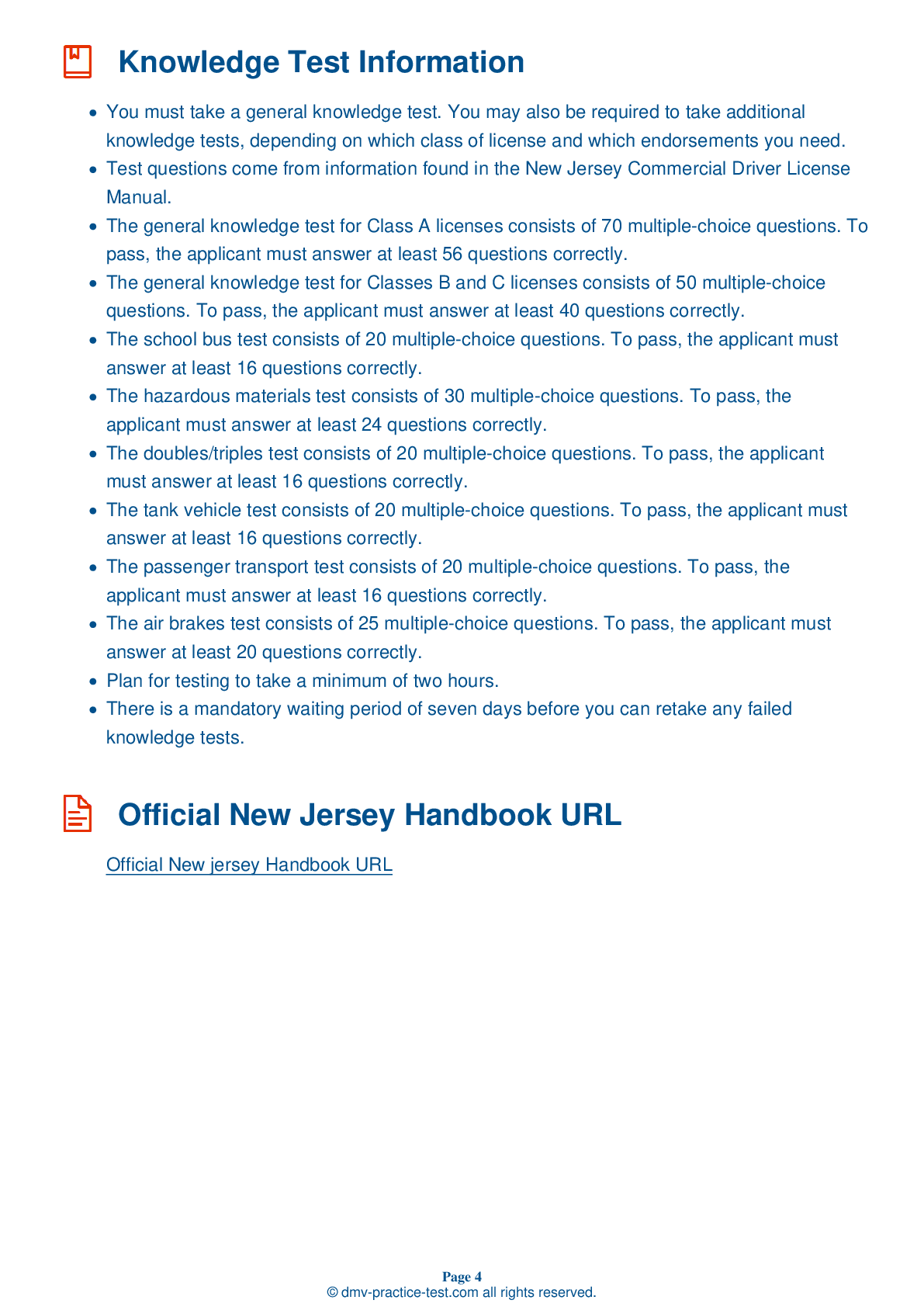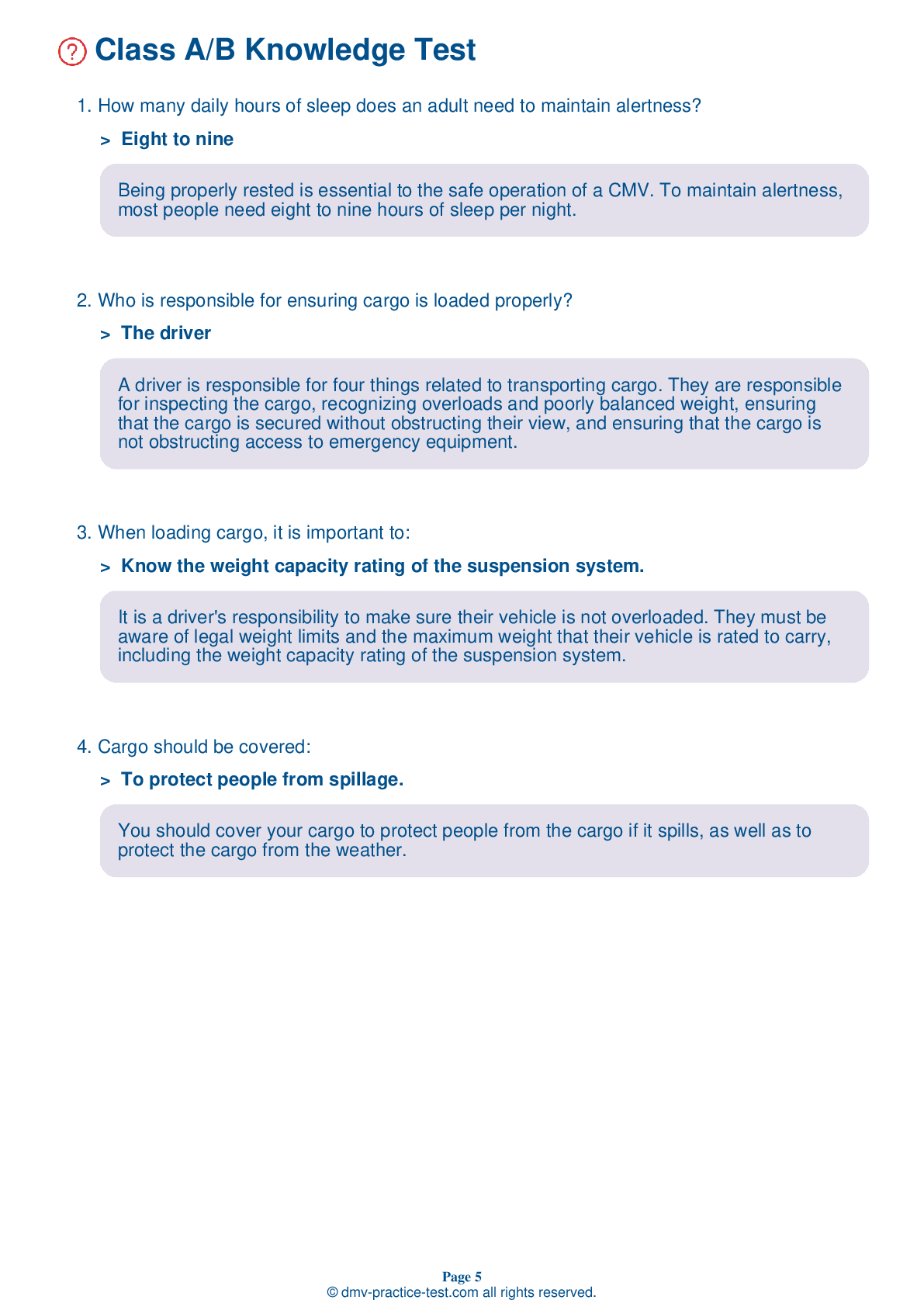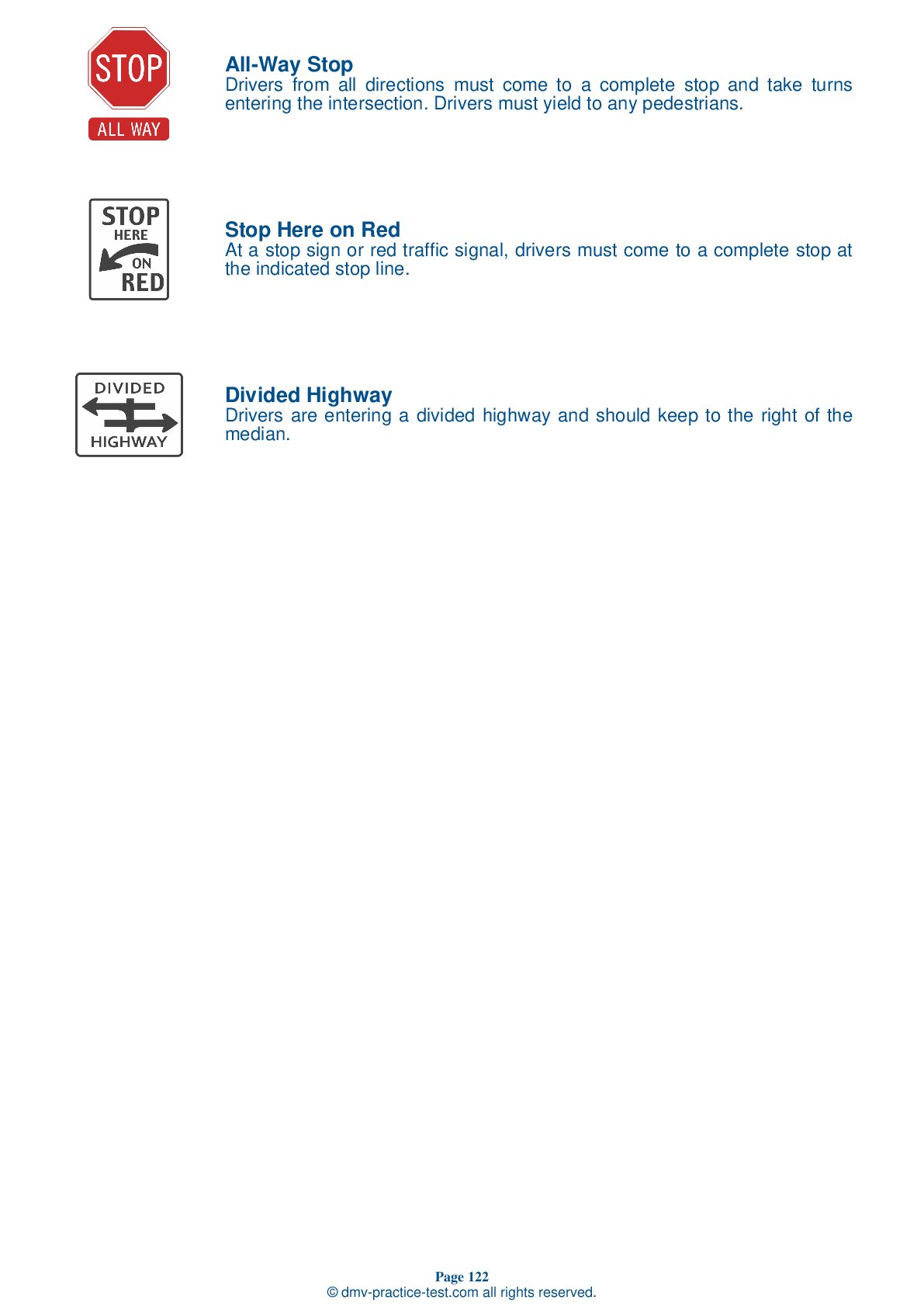Bus #2
Bus Driver Testing | New Jersey 2026 #2 Page 2 of 3
Train for FREE online with our NJ bus CDL test. The official exam test consists of several obligatory parts, with all of them checking your knowledge of different blocks of road rules. If you need to obtain a license in New Jersey in 2026, learn how to become a bus driver and then practice as much as possible. Free sample tests published on our website will help you check and improve your knowledge and boost your grades. Please bear in mind that DMV requirements for a bus driver may vary from state to state.
20
16
20
8 . After traveling under an overpass during the driving skills test, you may be asked to recall:
If there was a shoulder near the roadway.
If you drive under an overpass during the on-road driving skills test, your examiner may ask you to recall the posted clearance or height of the overpass.
9 . When driving through a curve during the skills test, you should:
Reduce your speed before entering the curve.
When approaching a curve during the on-road driving skills test, you must reduce your speed sufficiently before entering the curve so that you do not need to further brake or shift in the curve. Keep the vehicle in its lane and continue to check for traffic in all directions.
10 . Why should a school bus stop a short distance from students who are waiting to board?
Buses are difficult to drive.
When being stopped to load students, a school bus should stop at least 10 feet away from the waiting students. This forces the students to walk toward the bus, making it easier for the driver to keep track of their movements.
11 . When you are approaching a bus stop, the students on your bus should:
Ask the driver questions.
Students on a school bus should remain seated until they are told otherwise. It is unsafe for students to walk around the bus while it is moving.
12 . When asked about the vehicle's oil during the vehicle inspection test, you must be able to do all of the following, except:
Show that the oil level is below the refill mark.
During the vehicle inspection test, you must be able to indicate where the oil dipstick is located; show that the oil level is within a safe operating range; and show that the oil level is above the refill mark.
13 . When stopping to pick up students, you should park at least 10 feet away from the students:
Because a student may show up late.
When picking up students at a bus stop, you should come to a complete stop with the front bumper of the bus at least 10 feet away from the students. This forces them to walk toward the bus, allowing you to keep an eye on their movements.
14 . When performing a pre-trip inspection, you should make sure that:
There is something underneath the brake pedal.
When checking your vehicle's pedals during a pre-trip inspection, you should ensure that there is nothing under or around the pedals that will obstruct their use. Make sure the pedals are in proper working condition and that the surfaces of the pedals are grooved, if applicable.
2026 New Jersey | Frequently Asked Questions
A CDL Class B license in New Jersey allows the holder to operate single vehicles with a Gross Vehicle Weight Rating (GVWR) of 26,001 pounds or more, or any such vehicle towing another not exceeding 10,000 pounds. This includes buses, farm labor vehicles, and trailers. It does not allow the operation of Class A combination vehicles.
A Class B CDL license in New Jersey allows the holder to operate vehicles such as city buses, tourist buses, segmented buses, school buses, delivery trucks, dump trucks, garbage trucks, utility trucks and any single vehicle with a GVWR of 26,001 pounds or more or such vehicle towing another not exceeding 10,000 pounds.
In New Jersey, to obtain a Class B CDL license, you must be at least 18 years old (21 for interstate driving), have a valid basic New Jersey driver’s license, pass a vision exam, and successfully complete a written knowledge test. You must also pass a road skills test in the type of vehicle you plan to drive.
In New Jersey, you must be at least 18 years old to qualify for a Class B Commercial Driver's License (CDL). However, you must be 21 or older if you plan to drive across state lines or transport hazardous materials.
While not always necessary, specific endorsements can be added to a Class B CDL license in New Jersey to allow the driver to operate certain types of vehicles. These include school buses, passenger vehicles, tank vehicles, and those carrying hazardous materials. Each endorsement requires passing additional tests.
The Class B CDL skills assessment in New Jersey includes a pre-trip vehicle inspection, a basic vehicle control test, and an on-road driving examination. These tests evaluate your ability to inspect your vehicle, control it during basic maneuvers, and drive it safely in various road and traffic conditions.
Yes, Class B CDL license holders in New Jersey are limited to driving single vehicles with a gross vehicle weight rating (GVWR) of 26,001 pounds or more, or towing a vehicle not heavier than 10,000 pounds. They cannot operate a combination vehicle (Class A) unless they have the appropriate endorsement.
Yes, in New Jersey, the written Class B CDL test can be taken in languages other than English. The test is available in Spanish. However, federal regulations require all CDL holders to read and speak English well enough to communicate with the general public, understand highway traffic signs and signals, respond to official inquiries, and make entries on reports and records.
Yes, you can request test accommodations for the Class B CDL written exam in New Jersey if you have a disability. Accommodations may include extended time, a quiet testing location, or the use of a sign language interpreter. You will need to provide documentation of your disability and specify the type of accommodation needed when scheduling your test.
Yes, if you don't pass the Class B CDL written test in New Jersey, you can retake it. However, you must wait at least seven days before attempting the test again. There may also be additional fees for each retest. It's advisable to study the CDL manual thoroughly before retesting.



